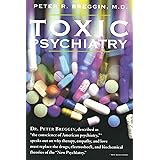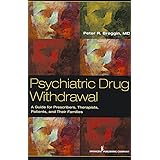
Enjoy fast, free delivery, exclusive deals, and award-winning movies & TV shows with Prime
Try Prime
and start saving today with fast, free delivery
Amazon Prime includes:
Fast, FREE Delivery is available to Prime members. To join, select "Try Amazon Prime and start saving today with Fast, FREE Delivery" below the Add to Cart button.
Amazon Prime members enjoy:- Cardmembers earn 5% Back at Amazon.com with a Prime Credit Card.
- Unlimited Free Two-Day Delivery
- Streaming of thousands of movies and TV shows with limited ads on Prime Video.
- A Kindle book to borrow for free each month - with no due dates
- Listen to over 2 million songs and hundreds of playlists
- Unlimited photo storage with anywhere access
Important: Your credit card will NOT be charged when you start your free trial or if you cancel during the trial period. If you're happy with Amazon Prime, do nothing. At the end of the free trial, your membership will automatically upgrade to a monthly membership.

Download the free Kindle app and start reading Kindle books instantly on your smartphone, tablet, or computer - no Kindle device required.
Read instantly on your browser with Kindle for Web.
Using your mobile phone camera - scan the code below and download the Kindle app.

OK
Medication Madness Paperback – May 26, 2009
Purchase options and add-ons
In Medication Madness, psychiatrist Peter R. Breggin, M.D., describes how people taking psychiatric medication can experience abnormal behavioral reactions, including suicide, violence, emotional breakdowns, and criminal acts. Dr. Breggin explains his concept of "medication spellbinding": individuals taking psychiatric drugs may have no idea whatsoever that their mental conditions are deteriorating and that their actions are no longer under control. He proves his argument by documenting dozens of cases from his practice and his consultations in legal cases.
Reading like a thriller, the book also examines how the FDA, the pharmaceutical industry, and the medical establishment continue to oversell the value of these drugs, and he provides information on how to safely stop taking psychiatric medications. Medication Madness is a compelling and frightening read as well as a cautionary tale about our reliance on medicine to fix what ails us.
- Print length402 pages
- LanguageEnglish
- PublisherSt. Martin's Griffin
- Publication dateMay 26, 2009
- Dimensions5.75 x 1.01 x 9 inches
- ISBN-10031256550X
- ISBN-13978-0312565503
Frequently bought together

Similar items that may deliver to you quickly
Editorial Reviews
Review
About the Author
Product details
- Publisher : St. Martin's Griffin; Reprint edition (May 26, 2009)
- Language : English
- Paperback : 402 pages
- ISBN-10 : 031256550X
- ISBN-13 : 978-0312565503
- Item Weight : 1.3 pounds
- Dimensions : 5.75 x 1.01 x 9 inches
- Best Sellers Rank: #126,528 in Books (See Top 100 in Books)
- #32 in Pharmaceutical Drug Guides
- #87 in Coping with Suicide Grief
- #125 in History of Medicine (Books)
- Customer Reviews:
About the author

Peter R. Breggin MD is known as “The Conscience of Psychiatry” for his many decades of successful reform work in the mental health field, but has now turned his attention to the misuse of science surrounding COVID-19 and its origins in what he and his coauthor Ginger Breggin are calling "global predators." He is currently the medical and psychiatric expert for an injunction against the governor of Ohio for oppressing the citizens with unending emergency decrees related to COVID-19. Dr. Breggin and his wife Ginger R. Breggin have written COVID-19 and the Global Predators: We are the Prey.
Dr. Breggin is a Harvard-trained psychiatrist and former full-time Consultant at the National Institute of Mental Health (NIMH) and part-time for the Federal Aviation Administration (FAA). He has been approved as a medical expert in over 100 legal cases in state and federal courts on issues relating to adverse drug effects, drug approval, the pharmaceutical industry, and the FDA. He is the author of two dozen medical, scientific, and best-selling popular books, as well as dozens of scientific articles.
Peter R. Breggin, MD, is a Harvard-trained psychiatrist and former full-time consultant at NIMH. He is in private practice in Ithaca, New York, and is the author of dozens of scientific articles and more than twenty books. Some of his many books include Toxic Psychiatry, Talking Back to Ritalin, The Antidepressant Fact Book, and The Heart of Being Helpful: Empathy and the Creation of a Healing Presence, and, with co-author Ginger Breggin, Talking Back to Prozac. His most recent publications include Medication Madness: The Role of Psychiatric Drugs in Cases of Violence, Suicide, and Crime (2008) and Brain-Disabling Treatments in Psychiatry: Drugs, Electroshock and the Psychopharmaceutical Complex, Second Edition (SPC, 2008). His two newest psychiatric books are Psychiatric Drug Withdrawal: A Guide for Prescribers, Therapists, Patients and their Families (SPC, 2013) and Guilt, Shame, and Anxiety: Understanding and Overcoming Negative Emotions (Prometheus, 2014). Dr. Breggin is the founder and director of The Center for the Study of Empathic Therapy, Education and Living (www.EmpathicTherapy.org) His professional website is www.breggin.com.
Customer reviews
Customer Reviews, including Product Star Ratings help customers to learn more about the product and decide whether it is the right product for them.
To calculate the overall star rating and percentage breakdown by star, we don’t use a simple average. Instead, our system considers things like how recent a review is and if the reviewer bought the item on Amazon. It also analyzed reviews to verify trustworthiness.
Learn more how customers reviews work on Amazon-
Top reviews
Top reviews from the United States
There was a problem filtering reviews right now. Please try again later.
Psychotropic drugs damage people further. Just a lazy approach to overcoming peoples problems. Drugs are deadly. In Almost all cases of suicide people have these drugs in there system.
Great book. A Real psychiatrist doing really great work saving and helping peoples lives instead of pushing these prescriptions that are not only creating disasteress consequences to peoples lives but killing them also
Just my opinion and personal experiences. Everyone is different. Some may find relief from medication. I just never seen or experienced it in my life. This book for me made a lot of sense.
It is truth for me
Vickie cosic
He does this by telling us about over 50 cases he has directly been involved with over the years, in which people have been literally poisoned by the very toxic drugs they were told would help them. Some of these cases he profiles have endings that could have been much worse; others that he profiles DO end much worse, resulting in suicides, homicides, violent attacks, broken families and shattered lives.
Unfortunately, if you are like me and work in a non-profit mental health clinic, you see the effects of these medications every day, which Dr. Breggin describes in this and other books. Tragically, the unholy allience that began in earnest in the 1970s between medical psychiatry and the pharmaceutical industry is alive and well, and growing every day. This incestuous marriage is supported by a pseudoscientific manual known as the Diagnostic and Statistical Manual of Mental Disorders, 4th edition (DSM-IV; soon to be DSM-5)
Most disgusting is the new inroads, starting 20 years ago, into what was then still an untapped market; children and adolescents. Now, thanks to the fictitious diagnosos of "ADHD" and the sudden, magical appearance of such diagnoses as Bipolar Disorder in children, they are a multibillion-dollar-a-year industry. Dr. Breggin addresses this story in-depth and quite well in the book, charting for us the tragic effects of this alliance, for example in Chapter 15 ("Parents forced to drug their children.")
Thankfully, there are people of great conscience and courage as Dr. Peter Breggin, and books like Medication Madness, to help shed the light of truth on what the late great psychiatrist Thomas Szasz called, "The Science of Lies."
But your "machine" for self-evaluation can be compromised by the use of prescription drugs and therefore your description of the success or failure of the current dosage or type of medicine may be flawed. Medical professionals appear to be flying blind in the use of such drugs. The patient is an unreliable source of information. His friends or relatives may be pleased that he is less agitated, less active or more controllable, but they will be unaware of the underlying state of mind of the patient. And the doctor will most likely increase dosage if the original negative symptoms remain, or just as bad or worse, stop the patient's drug use "cold turkey" when faced with undesirable side effects.
MEDICATION MADNESS describes some of the documented worst outcomes in the use of common prescription drugs with brand names like Wellbutrin, Ritalin, Xanax and many others. Are these worst case killings, suicides, and other violent examples isolated extremes? The book provides evidence that such negative outcomes are not isolated. Warnings for all of these drugs advise that the patient should stop taking the medicine and seek medical help if they have negative symptoms. For example Wellbutrin's list includes the admonition to do so if you experience: "Severe agitation or confusion, thoughts of hurting yourself, other unusual thoughts".
If you ever wondered upon watching the television ads for these and other drugs why anyone would take medicines apparently loaded with possible negative outcomes, the obvious answer is that they are willing to accept the risks knowing that they can evaluate their current state of mind or body and thus be able to stop the process before it becomes dangerous. Maybe this is possible with psychiatric drugs, but placing that burden of risk evaluation on a medicated, mentally unbalanced patient or on a small child who has a limited understanding of his body, seems very risky indeed.
The mind is a wonderful thing, but it is also a delicate mechanism with its reasoning powers easily reduced by the use of drugs or alcohol and by social, parental or peer pressure, coupled with pronouncements from authorities above. The prescription and evaluation of psychiatric drugs brings into play many of these elements. This is dangerous territory for those who are on the edge or simply innocent children.
Top reviews from other countries
Definitely a 5 Star Rating with this transaction.
I have learned a lot from this book and it is an eye opener for me. I think every parent should have this book available in their homes and find the information to understand what their medications really do and the not so obvious consequence on taking some of their medications and side effects.
This book was such an easy read, I was extremely impressed and happy to have purchased it from you. I wish I had it 20 years ago if not more. The information that this book provided was exceptional and I think more people should be made aware of what medications they are taking and giving to their children, not knowing what some of the side effects that goes with taking certain medications that are easily prescribed by their doctors. I am very happy to have purchased it from you. Extremely Informative!!!
Sincerely,
Rachelle
the book opens our eyes and frame of mind to view our life and issues with humanistic humane way and not as illnesses but needing help to our emotional health.
how medications are used in the name of well coined sensational languages of literary credits to describe the medications and the wraps to misguide and confuse people with psychological blackmailing as antihistamine ,painkiller ,alphablocker or betablocker and sleep inducing ,nerve relieving etc various gimmicks. none of the psychotropic medications neuroleptics have had any scientific researches made ever nor possible.
the book also describes to all of us to feel the issues in life as real and consequential symptoms as real and how pharmacology misrepresent them as 'illness' and 'disorders' using jargons.












